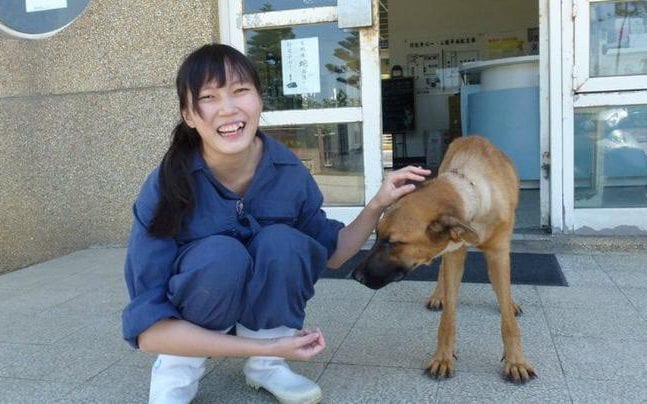KATRINA CROSBY WRITES – Ninety minutes — the length of a new documentary — was all it took to turn Taiwanese animal shelters and how people view them upside down – and to usher in new legislation giving animals unprecedented rights.
On February 3, Taiwan enacted a law making it illegal to euthanize animals left at shelters. Instead, the legislation encourages owners to spay and neuter their pets — thereby lowering the number of animals in need of shelter – and encourages greater public adoption of those without forever homes.
It’s great news for cats and (especially) dogs, but how things got to this point is a sad, cinematic tale.
On an ordinary Friday in 2013, crowds gathered at the Golden Horse Film Festival in Taipei to watch the newly premiered documentary Twelve Nights, a story of dogs forced into cages, mistreated, and ultimately killed in one of Taiwan’s many animal shelters.
While documentaries rarely lead to such immediate public action, Twelve Nights struck a nerve. It just took another four years — and a catalyst in the form of veterinarian Chien Chih-cheng — to usher in change.
Chien Chih-cheng was more than just a veterinarian working out of Taipei. It was noted that Chien, “often worked overtime, rarely took a proper lunch break, and sacrificed her holidays to give the dogs more attention and make their lives better.”
But like many other veterinarians in Taiwan, Chien also euthanized countless animals, a grim responsibility for the shelter staff. She rationalized that in killing them she was giving them a better end than they would eventually meet on the street.
At only 31, Chien managed to become director of Xinwu Animal Protection and Education Center, the animal shelter where she had worked since 2010.
In early 2016, less than a year after her promotion, it was reported locally that Chien had euthanized more than 700 shelter animals over the course of two years. Already primed to the topic by Twelve Nights, people all over the internet quickly nicknamed her the “beautiful slaughterer” and “butcher.”
As the shelter’s director, Chien (whose name, in an ultimate irony, translates to ‘dog’ in French) took the brunt public complaints and criticisms. Chien was reportedly devastated by being called a butcher of the animals for whom she cared so deeply and had regularly sought good homes.
On May 5, 2016, overwhelmed and depressed, Chien took her own life, through an injection of the same euthanasia drugs she had used on her wards. She passed on May 12, leading to an onslaught of public grief, guilt and self-reflection.
In a note she left behind, Chien wrote, “I hope my departure will let all of you know stray animals are also life. I hope the government knows the importance of controlling the source [of the problem].” With this public call to attention, policy has finally begun to change.
The law passed last month introduces a new fee to any person who wants to abandon their pet, as well as increasing the number of inspectors that monitor shelter conditions.
The legislation is not perfect, but is a start. And that’s important, given that the number of euthanized animals in Taiwan has risen to 1.2 million since 1999.
It has been a long fight for the humane treatment of animals in Taiwan and the country will still face a problem with its high number of strays. However, this is the dawning of a new age. To quote Twelve Nights, “Once death was so imminent. Yet, it all feels like a dream now.”
You can watch Twelve Nights in its entirety on YouTube.

